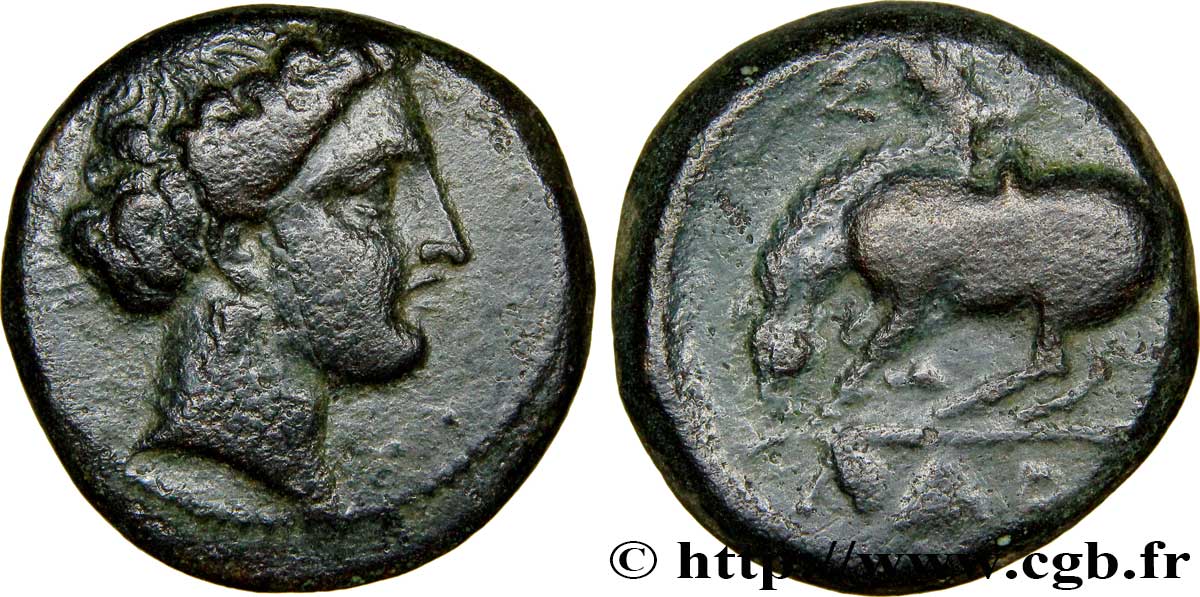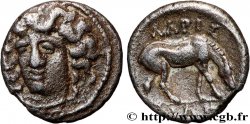E-auction 43-17170 - bgr_310557 - THESSALY - LARISSA Dichalque
You must signin and be an approved bidder to bid, LOGIN TO BID. Accounts are subject to approval and the approval process takes place within 48 hours. Do not wait until the day a sale closes to register. Clicking on « bid » constitutes acceptance of the terms of use of cgb.fr private e-auctions.
Bids must be placed in whole Euro amounts only. The sale will start closing at the time stated on the item description; any bids received at the site after the closing time will not be executed. Transmission times may vary and bids could be rejected if you wait until the last second. For further information ckeck the E-auctions F.A.Q.
NO BUYER'S FEE.
NO BUYER'S FEE.
| Estimate : | 95 € |
| Price : | 20 € |
| Maximum bid : | 20 € |
| End of the sale : | 10 February 2014 15:03:30 |
| bidders : | 6 bidders |
Type : Dichalque
Date: c. 350 AC.
Mint name / Town : Larissa, Thessalie
Metal : copper
Diameter : 16 mm
Orientation dies : 6 h.
Weight : 4,91 g.
Rarity : R1
Coments on the condition:
Exemplaire sur un petit flan ovale épais bien centré des deux côtés à l’usure importante, mais parfaitement lisible et identifiable. Jolie patine vert foncé
Catalogue references :
Predigree :
Cet exemplaire provient de la collection BCD (lot)
Obverse
Obverse legend : ANÉPIGRAPHE.
Obverse description : Tête de la nymphe Larissa à droite, les cheveux retenus par un filet.
Reverse
Reverse legend : LÉGENDE PARTIELLEMENT INVERSÉE.
Reverse description : Cheval à gauche, levant l'antérieur gauche.
Reverse legend : SAI[WN]/ LAR[I]
Reverse translation : (des Larissiens).
Commentary
Poids léger. La légende de revers est rétrograde. Trace de cassure de coin au revers au-dessus du cheval. En fait le monnayage divisionnaire semble beaucoup plus rare que le monnayage d’argent.








 Report a mistake
Report a mistake Print the page
Print the page Share my selection
Share my selection Ask a question
Ask a question Consign / sell
Consign / sell
 Full data
Full data









